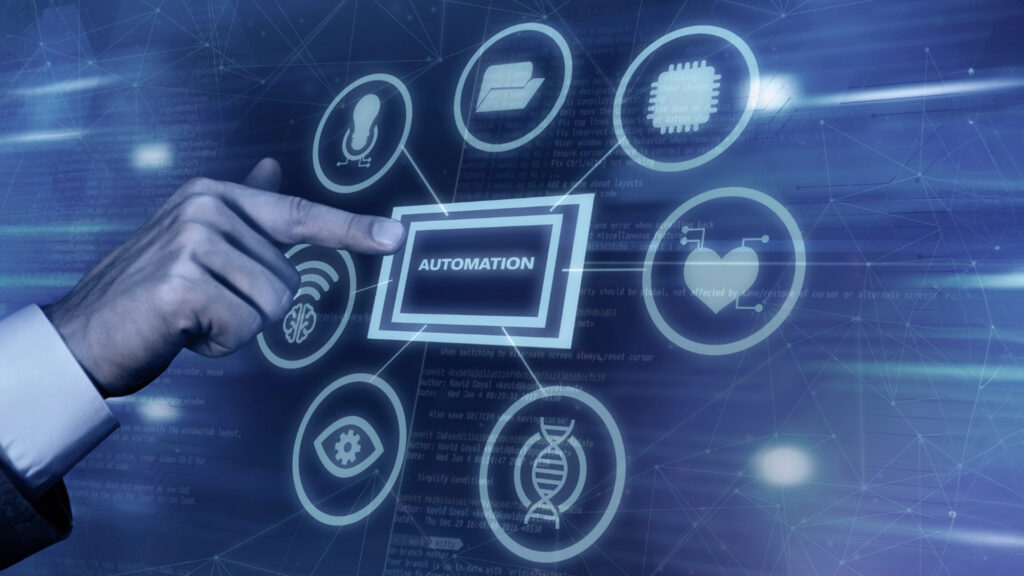Undeniable changes are reshaping the landscape of our lives, including our communication methods and shopping habits. In today’s fast-paced world, where the current generation wields significant purchasing power, it becomes increasingly important to question whether Indian retailers are willing to meet consumers’ ever-changing demands.
As a crucial strategy, the adoption of retail automation becomes urgent. According to Indian Retailer, the Indian direct selling industry is projected to reach a worth of Rs 64,500 crore by 2025, underscoring the significance of retailers adapting quickly.
In light of these developments, how can automated retail systems assist businesses in successfully navigating this new era? Let us delve into the complexities and explore the vast possibilities ahead.
The Potential of Retail Automation

In the fast-paced modern world, convenience, and efficiency are highly valued, making smart retail technology a game-changer. By integrating advanced technologies like AI and ML, smart retail technology streamlines processes and elevates the customer experience.
For instance, the implementation of smart vending machines exemplifies this potential. These innovative machines optimize operational efficiency, enhance inventory management, and provide personalized experiences. They enable faster transactions, efficient supply chain management, and data-driven decision-making, empowering retailers to remain ahead in the ever-evolving retail landscape.
Now that we have explored the potential of smart retail technology, let’s shift our focus to strategies that retailers can employ to adapt to changing consumer behaviors in this dynamic landscape.
Strategies for Retailers to Adapt to Changing Consumer Behaviors

To successfully adapt to the ever-changing behaviors of consumers in the era of retail automation, retailers can employ various strategies. The following are a few of the methods listed below:
Embracing E-commerce and Omnichannel Retailing
Retailers should accept the boundless opportunities offered by e-commerce platforms and establish a formidable online presence to cater to the demand for digital shopping experiences. Adheres can provide customers with a seamless and consistent shopping journey by adopting an omnichannel automation approach that seamlessly integrates online and offline channels.
Enhancing Online Presence and User Experience
Investing in user-friendly websites, mobile apps, and intuitive interfaces can be a game-changer in significantly enhancing the online shopping experience. Retailers must optimize their online platforms for unparalleled convenience, personalization, and effortless navigation.
Leveraging Data Analytics for Personalized Marketing Strategies
By harnessing the untapped power of data analytics, retailers can gain invaluable insights into consumer preferences, purchase patterns, and behavioral trends. These insights will help create personalized marketing strategies, targeted promotions, and tailored recommendations, ultimately resulting in a more engaging and relevant shopping experience.
Investing in Training and Upskilling Employees for a Tech-Driven Future
Retailers should proactively invest in comprehensive training and upskilling programs. By providing relevant training programs and equipping the workforce with the necessary skills to adapt to automation, manage advanced technologies, and deliver exceptional customer service, retailers pave the way for long-term success.
By diligently employing these strategies, retailers can effectively adapt to the ever-changing behaviors of consumers in the era of retail automation. Let’s explore the advantages of adopting these shifting consumer behaviors and how retailers use them to maintain a competitive edge.
Advantages of Adapting to Shifting Consumer Behaviors

Adapting to shifting consumer behaviors offers various advantages for retailers. By remaining attuned to changing trends and preferences, retailers can stay relevant and seize new market opportunities. The benefits of businesses adapting to shifting consumer behaviors are as follows:
Increased Customer Engagement
Businesses can engage with their customers meaningfully by adapting to changing consumer behaviors. Retailers can tailor their marketing strategies, product offerings, and personalized customer experience to their target audience’s preferences by analyzing consumer data and market trends. This targeted approach improves customer engagement while also encouraging loyalty and satisfaction.
Increased Competitiveness
Adapting to shifting consumer behaviors keeps businesses competitive in the market. Consumer preferences can change rapidly, and those retailers who are quick to respond and adjust have a distinct advantage. By closely monitoring consumer trends and behaviors, businesses can make timely adjustments to their strategies, ensuring they remain relevant and competitive in the eyes of their target market.
Improved Customer Satisfaction
When businesses adapt to shifting consumer behaviors, they can better understand and meet the requirements of their customers. Companies can enhance customer satisfaction by offering products, services, and experiences that align with customer preferences. This leads to increased loyalty, positive word-of-mouth, and repeat business, all contributing to long-term success.
Market Expansion Opportunities
Adapting to shifting consumer behaviors allows businesses to expand into new markets. By identifying emerging trends and consumer demands, retailers can develop new products or modify existing ones to cater to different market segments. This flexibility allows businesses to tap into previously untapped customer bases, driving growth and diversification.
Improved Brand Perception
When businesses adapt to shifting consumer behaviors, they demonstrate their ability to understand and respond to the needs of their customers. This adaptability enhances the brand perception and positions the business as forward-thinking and customer-centric. A positive brand perception can attract new customers, strengthen customer loyalty, and differentiate the company from competitors.
However, implementing automation comes with its own set of challenges and considerations. Let’s now delve into the challenges and concerns retailers face in implementing retail technology.
Challenges and Considerations in Implementing Retail Automation

Implementing smart retail technology comes with its fair share of challenges and considerations that retailers must navigate. These factors include cost implications and infrastructure requirements, privacy concerns and data security, the impact on employment and workforce implications, and ensuring a seamless integration of technology and the human touch.
Cost Implications and Infrastructure Requirements
Smart retail technology often necessitates substantial upfront investments in technology, equipment, and infrastructure. Retailers must diligently evaluate the costs and thoroughly assess their infrastructure to ensure a seamless implementation process.
Privacy Concerns and Data Security
As automation entails collecting and processing customer data, privacy concerns, and data security take center stage. Retailers must implement robust security measures and ensure compliance with relevant regulations to safeguard customer information and maintain trust.
Impact on Employment and Workforce Implications
The adoption of automation technologies may raise concerns about potential job displacement. Retailers must proactively address these concerns by identifying opportunities for reskilling and upskilling employees, creating new roles that complement automation, and ensuring a smooth transition for the workforce.
Ensuring a Seamless Integration of Technology and Human Touch
While automation can streamline processes and enhance efficiency, balancing technology and the human touch is essential. Retailers should focus on maintaining personalized interactions, providing exceptional customer service, and finding ways to incorporate human elements alongside automation.
Retail Automation Transforms Consumer Behaviors and Fuels Growth

The key to adapting to changing consumer behaviors and discovering growth opportunities is smart retail technology. Retailers have to adopt technology in retail proactively as the demands of the Indian audience continue to shift. Businesses can streamline operations, personalize experiences, and foster seamless channel integration by leveraging advanced technologies and tailored solutions.
Adopting innovative solutions meets consumers’ convenience-driven expectations in industries such as cosmetics, electronics, and pharmaceuticals. Retailers can navigate this dynamic landscape and position themselves for success in the ever-changing world of retail with the right strategies in place.
Also read: What Does India’s Gen Z Expect From D2C Brands in 2024?

